Related Research Articles

Luchino Visconti di Modrone, Count of Lonate Pozzolo was an Italian filmmaker, theatre and opera director, and screenwriter. He was one of the fathers of cinematic neorealism, but later moved towards luxurious, sweeping epics dealing with themes of beauty, decadence, death, and European history, especially the decay of the nobility and the bourgeoisie. Critic Jonathan Jones wrote that “no one did as much to shape Italian cinema as Luchino Visconti.”
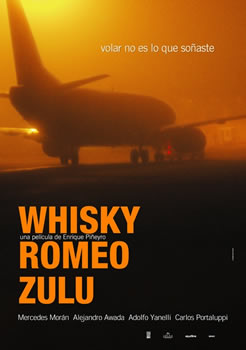
Whisky Romeo Zulu is a 2004 Argentine drama film directed by Enrique Piñeyro and written by Piñeyro and Emiliano Torres. Verónica Cura was the executive producer and Enrique Piñeyro was the producer.

Enrique Santos Discépolo (Discepolín) was an Argentine tango and milonga musician and composer, author of famous tangos like Cambalache and many others performed by several of the most important singers of his time, amongst them notably Carlos Gardel. He was also a filmmaker, actor and screenwriter.

Cinema of Argentina refers to the film industry based in Argentina. The Argentine cinema comprises the art of film and creative movies made within the nation of Argentina or by Argentine filmmakers abroad.

Tango is a 1998 Argentine-Spanish musical drama film written and directed by Carlos Saura and starring Miguel Ángel Solá and Mía Maestro. It was photographed by cinematographer Vittorio Storaro.

Apartment Zero, also known as Conviviendo con la muerte, is a 1988 British-Argentine psychological-political thriller film directed by Argentine-born screenwriter Martin Donovan, co-written by Donovan and David Koepp and starring Hart Bochner and Colin Firth. It was produced in 1988 and premiered at film festivals throughout the next year. The story is set in a rundown area of Buenos Aires at the dawn of the 1980s, where Adrian LeDuc becomes friends with Jack Carney, an American expatriate who rents a room from him. Gradually, Adrian begins to suspect that the outwardly likeable Jack is responsible for a series of political assassinations that are rocking the city.

Dark River is a 1952 Argentine drama film directed by Hugo del Carril, starring del Carril, Adriana Benetti and Raúl del Valle. It is based on a novel by Alfredo Varela. The storyline is about exploitation of peons, and the film has a populist message that ties in with the director's sympathy for Peronism. The film won the Silver Condor Award for Best Film.

Cinenacional.com is a web portal and web-based database about Argentine cinema. It is the most comprehensive site for information about the Argentine film industry, with a vast array of information on films, television programs, directors, actors, cinematographers, film editors, production designers, and film viewing figures. As of July 2022 it has 53,567 articles on films in its database, 11,074 technical data sheets, and 25,478 photos. The site receives an average of 18,000 views a day.
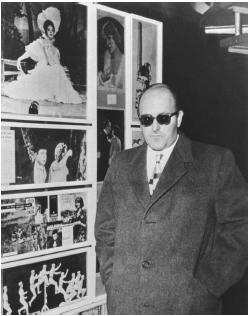
Leopoldo Torre Nilsson, also known as Leo Towers and as Babsy, was an Argentine film director, producer and screenwriter.
Vera Fogwill is an Argentine film and television actress, film director, and screenplay writer, active in the cinema of Argentina.
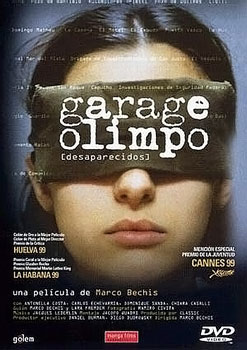
Olympic Garage is a 1999 Argentine political thriller, directed by Marco Bechis.

Mateo is a 1937 Argentine crime drama film directed by Daniel Tinayre, which he adapted from the play by Armando Discépolo. Starring Luis Arata, Enrique Santos Discépolo, José Gola and Alita Román, it was the first successful film of Tinayre's.
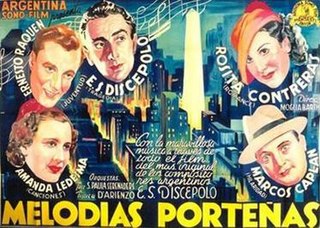
Melodías porteñas is a 1937 Argentine film, a musical directed and written by Luis Moglia Barth. It is based on a struggling radio station, and depicts the events leading up to and following the disappearance of the station's star tango singer, played by Amanda Ledesma. It may be seen as an exposé of the sensationalism of radio stations of the period. Enrique Santos Discépolo won praise for his performance as the increasingly desperate director of the station.
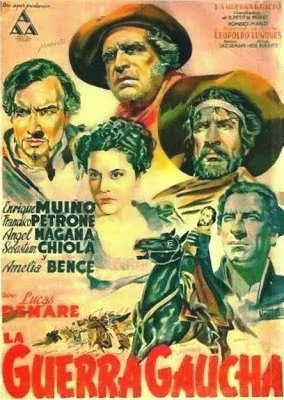
The Gaucho War is a 1942 Argentine historical drama and epic film directed by Lucas Demare and starring Enrique Muiño, Francisco Petrone, Ángel Magaña, and Amelia Bence. The film's script, written by Homero Manzi and Ulyses Petit de Murat, is based on the novel by Leopoldo Lugones published in 1905. The film premiered in Buenos Aires on November 20, 1942 and is considered by critics of Argentine cinema to be one of the most successful films in history. It won three Silver Condor awards, including Best Film, Best Director, and Best Adapted Screenplay, given by the Argentine Film Critics Association at the 1943 Argentine Film Critics Association Awards for the best films and performances of the previous year.
Don Fulgencio is a 1950 Argentine film, directed by Enrique Cahen Salaberry and starring Enrique Serrano. The film is based on various episodes revolving around the popular Argentine character Don Fulgencio, created by Lino Palacio.

The Girl's Houseboy is a 1951 Argentine musical comedy film, directed by Enrique Carreras on his directorial debut with Juan Sires. It is based on a play by Nato Lamarque, which he adapted for the screen. It stars Lolita Torres, Alfredo Barbieri, Tito Climent and Gogó Andreu and was released on 24 October 1951 in Buenos Aires.

Las furias is a 1960 Argentine drama film directed by Vlasta Lah, based on the 1950 play of the same name by Enrique Suárez de Deza. The first Argentine sound film directed by a woman, it was the directorial debut for Lah, who became the only woman film director in 1960s Latin America. Its cast is almost exclusively female, starring Mecha Ortiz, Olga Zubarry, Aída Luz, Alba Mujica and Elsa Daniel as characters whose name are not presented, being introduced as "the Mother", "the Lover", "the Wife", "the Sister" and "the Daughter", respectively.
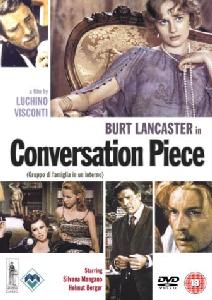
Conversation Piece is a 1974 drama film directed, co-written, and produced by Luchino Visconti. It stars Burt Lancaster, Helmut Berger, Silvana Mangano, and Romolo Valli; with cameo appearances by Claudia Cardinale and Dominique Sanda. The film explores such themes as the collision between old and new, imminence of death, existential crises, and the sociopolitical gap between generations. The title refers to an informal group portrait, especially those painted in Britain in the 18th century, beginning in the 1720s.
La Razón was a local newspaper distributed in the public transport in Buenos Aires, Argentina.

Marco Berger is an Argentine film director and screenwriter.
References
- 1 2 3 4 5 Martin Donovan Biography/Filmography Videomaniaticos.com (in Spanish)
- ↑ Martín Donovan Cinenacional.com (in Spanish)
- 1 2 Apartment Zero Mondo Digital
- ↑ BERLIN 1984 – THE 34TH BERLINALE FILMFESTSPIELE: Zoo Parade, by Harlan Kennedy American Cinema Papers